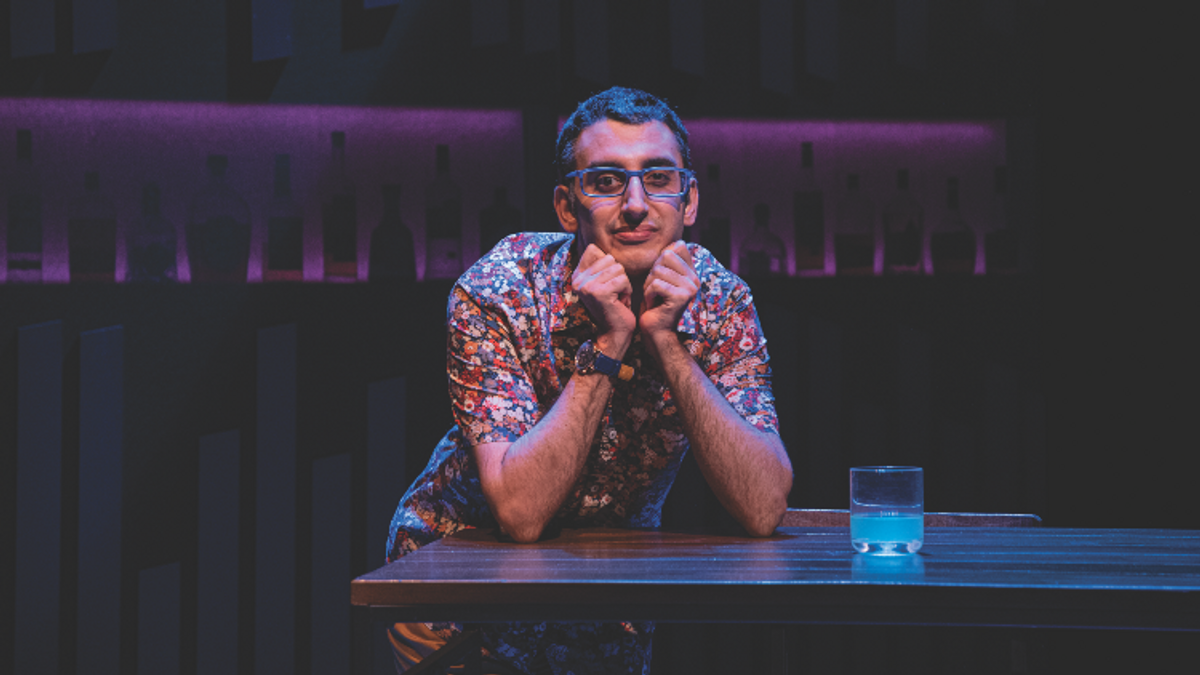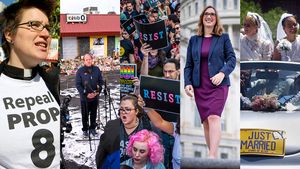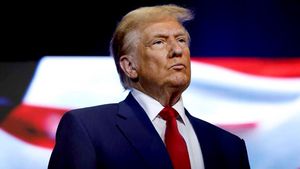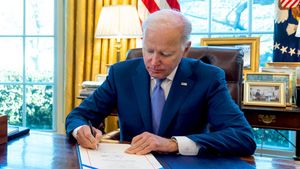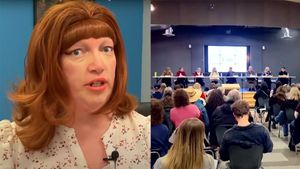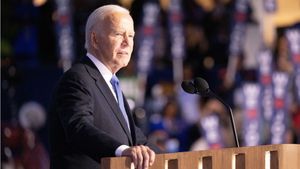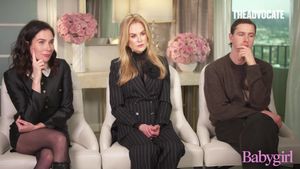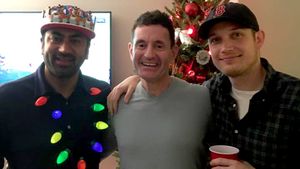How many famous sex scenes have you watched on stage or screen featuring a character with a disability? For the longest time I couldn't think of any, at least none that were erotic instead of inspirational, or authentically cast with a disabled actor. That is, until Netflix premiered Special, written by and starring Out's cover star Ryan O'Connell.
Ryan and I have the same first name. We are both brunettes who wear glasses, we are both gay, and we both have cerebral palsy. In the third episode of Special, Ryan gives his character a real, honest, truthful, clumsy, steamy sex scene. A gay, disabled Hollywood sex scene. I was in tears watching it because, well, I had never seen that before. Ever.
"Representation matters" is a somewhat overused adage that is applied to many stories centering marginalized people, but there I was, watching a CP sex scene on Netflix, learning fully what the phrase meant to me.
I had maneuvered awkwardly, with help, into that same position on the bed before. Like Ryan's character, I waited longer than many young gays to have intercourse because I didn't know how it would feel, how my body would react, and I wanted to find a person I trusted to guide me through that moment. I learned quickly that sex is not as seamless or effortless -- for anyone -- as the media would have us believe. But there was a body like mine on the screen, showing me all of that was OK and that I didn't have to worry. In fact, it could be quite fun.
If only a scene like that had existed on television a few years, or decades, earlier. I'm an actor and playwright. I strive in almost all my work to make disability sexy. I begin my play Hi, Are You Single? with my shorts at my ankles, my torso exposed, rubbing my crotch (clothed in colorful underwear) in pursuit of pleasure with a stranger on FaceTime. I do this so there is no question that the disabled person onstage is horny as fuck and possesses the same carnal desires as nondisabled audience members, especially the gay boys.
The concept of that scene in Special was not new to me, but it was the first time I had seen something so personal reflected back to me as a viewer. And we need more. So much more.
We need platforms to tell our own stories. We need deaf and disabled creatives in front of and behind the camera. We need to lead. We need not dilute or soften our aesthetic sensibilities to appease executives who want to exploit our otherness or make themselves feel better by throwing us a carrot or two, while nondisabled and hearing Hollywood gets a full-fledged garden.
Let me tell you about one of those carrots. Several years ago, a major studio was finishing up casting for a film stacked with celebrities. One of those celebrities was going to play disabled (of course). The argument is always that big names are needed for box office draw, and aren't we lucky that disabled projects are getting green-lit in the first place? The truth is, no. No, we're not. Not if you don't use us. Uplift us. Pay us.
Anticipating flak for the egregious casting choice, the studio put out a call for a disabled actor to fill a smaller role. By small, I mean the character had two lines. Not two scenes. Two lines! This would-be blockbuster full of stars, relying on disability to provide a plot, was going to give one genuine disabled actor the privilege of being peripheral.
I had done very little screen work up to that point and couldn't be picky, so I accepted the audition appointment despite my moral concerns about the project. When I walked into the casting office, I was greeted by basically every other disabled actor in New York City. Anybody with a stubbed toe was in that waiting room. All ages, races, genders, and forms of disability were competing for the same part.
You see, there was no specificity or substance to the character. The production team was merely seeking a "disabled person." Any disabled person. As though disability was a "type" in and of itself. They didn't care about those two lines of dialogue, and they didn't care about the massive group of actors who'd been invited to read them. They cared about checking a box that said, "We did the work to hire someone disabled," hoping to alleviate the guilt of their totally voluntary misstep.
Now, let me tell you the Hollywood difference between a nondisabled actor who stars in a disability movie and a disabled actor with two lines who is essentially relegated to the background: their paychecks, i.e. tens of thousands of dollars, maybe hundreds of thousands of dollars.
When we talk about Hollywood's disability problem, it's not just about representation or authenticity, though both are extremely important. It's also about livelihood. If you want to tell a deaf or disabled story but you don't trust a deaf or disabled actor, you have no business being the one to tell that story. Don't do it. You don't get to. You're depriving us of money to pay our rent, put food on our tables, take care of ourselves and our families, save, and plan for economically stable futures.
Most of the time, life-changing amounts of money end up in the pockets of people who don't need it, who take roles they know they shouldn't because disability is great bait for awards. But I don't want to see those stars on the red carpet anymore, all traces of their performance of disability wiped away.
I want deaf and disabled people on the red carpet. I want deaf and disabled people at the Emmys and the Academy Awards. I want deaf and disabled presence in writers' rooms to make sure our stories are as fabulous as we are. We have the skills. We have the talent. Continuing to ignore us is lazy and harmful. This is the time to make deaf and disabled people the stars. Start now.
Ryan J. Haddad is an actor, playwright, and activist with cerebral palsy. He can be seen in the Netflix series The Politician. His unapologetically sexy, super gay play Hi, Are You Single? is available to stream February 1 to 28, a co-production between Woolly Mammoth and IAMA Theatre Companies. Tickets available at woollymammoth.net.
A version of this story first appeared in Out's 2021 Hollywood Issue. Jake Borelli is featured on the cover alongside Ryan O'Connell and Alexandra Grey. It is the first print issue under the editorial direction of editor-in-chief David Artavia. The issue is out on newsstands on March 3, 2021. To get your own copy directly, support queer media and subscribe -- or download yours for Amazon, Kindle, Nook, or Apple News +.
